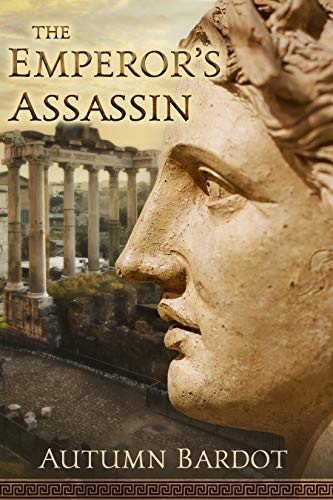Greetings, commies & SJWs!
If you want more of the same old, same old, women's historical fiction fueled with "wokeness" and man-bashing, here is a well written novel by Autumn Bardot, The Emperor's Assassin. Don't let the in-your-face title deter you. Here is a hint: the Emperor doesn't show up until later. It's an endless angry girl aria, an estrogen fountain.
Synopsis:
History paints her as the first female serial killer.
Locusta is the daughter of a winemaker in the Roman province of Gaul. She enjoys the indulged childhood of the elite, her concerns only about the day’s amusements. She rides gentle ponies, attends parties, reads Ovid, and learns the herbal arts from her servant. But the day after meeting her betrothed, Locusta discovers the consequences of possessing such dangerous knowledge.
Ordered to leave her pastoral life, Locusta is thrust into a world of intrigue, scandal, and murder—where treason lurks behind every corner and defying an emperor means death.
Locusta’s life changes forever when a young Emperor Nero requires her herbal expertise. And commands her to be his personal poisoner. Caught in an imperial web, Locusta must embrace her profession or die.
Or is there another way out?
History has nothing good to say about this woman. Or is that because men wrote her story?
My thoughts:
Storytelling merits apart, this novel is a blatant, unabashed #MeToo fest. You'd think the author was writing a "woke" sitcom. You can find every key ingredient: the autistic brother, the demented father, the LGBT best friend, the bratty materialistic younger sis, the hunky one night stand boyfriend, the arrogant-sadistic-entitled patrician. Those are well developed stock characters. It's a 2020 ABC-worthy prime time drama set in ancient Rome. Obviously, I cannot get inside the author's head, but my guess is that she was catering to the ultra left modern audiences to create a string of "relatable" characters. A part of me is rolling my eyes: Here we go again, demonizing men. But a part of me is humming and nodding: the book has literary merits. The premise and the delivery are not astonishingly original. A woman in the man's world, fighting for survival, validation, etc. Blah, blah. That's what 90% of historical fiction is about these days. So I am not going to knock it. It's really hard to write something original for the #MeToo audience.

No comments:
Post a Comment